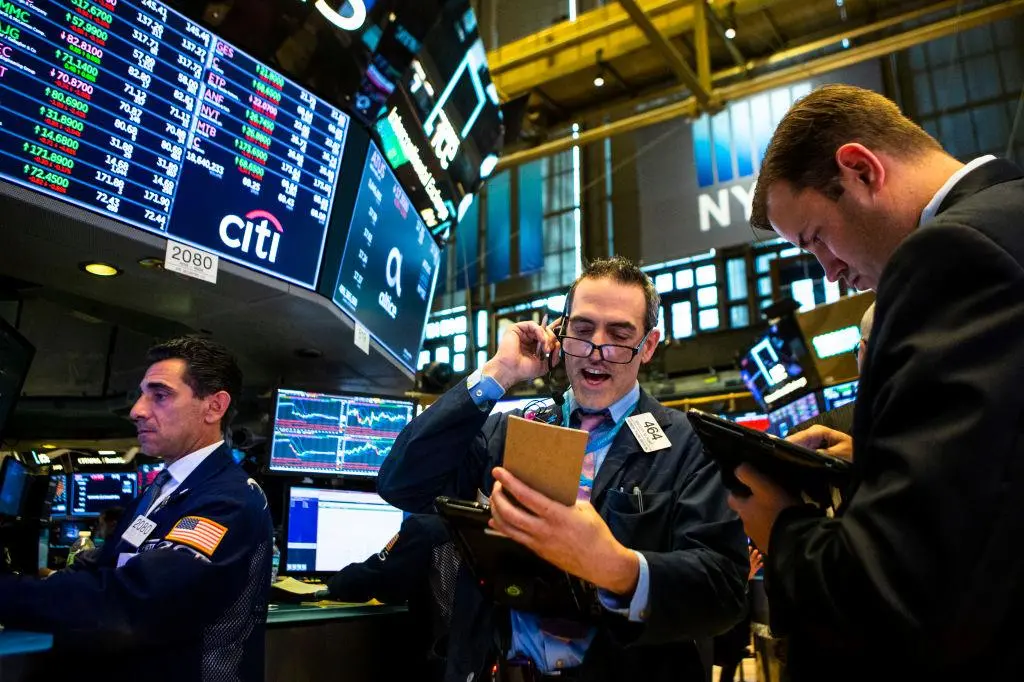PHOTO
- Asian shares tracked Wall Street lower following the Fed’s decision
- The Saudi market fell on Wednesday on lower oil prices
- Oil prices drop on fears of oversupply
- Dollar steadies, gold firms
The United States’ Federal Reserve on Wednesday raised the key overnight lending rate by a 0.25 percent point as expected, to a range of 2.25 percent to 2.50 percent.
The Fed said “some further” rate hikes would be necessary in the year ahead, with its policymakers projecting two rate hikes on average next year instead of three they saw back in September, a change that was also largely in line with expectations.
Global markets
Asian shares tracked Wall Street lower, as the Fed’s decision could not ease market fears over a further U.S. economic slowdown on the back of trade tensions with China.
MSCI’s broadest index of Asia-Pacific shares outside Japan dropped 1.3 percent, with Australian shares slipping as much as 0.7 percent to two-year lows.
Overnight, the U.S.’s S&P 500 Index lost 1.54 percent to hit its lowest level since September 2017.
“I think the Fed may be underestimating other factors at play,” Bob Baur, chief global economist at Principal Global Investors in Des Moines, Iowa in the Unites States, told Reuters.
“Trade has been making headlines, but I think a gradual tightening of monetary policy has been the driving force behind recent market volatility. With corporate borrowing and spending still high, and the Fed continuing to reduce its balance sheet, I’d expect volatility to remain if this tightening continues,” he said.
Middle East markets
Lower oil prices weighed on the Saudi stock market on Wednesday, as the kingdom’s index dropped 1.1 percent.
Saudi Basic Industries dropped 2.4 percent, and Al Rajhi Bank fell 1.4 percent.
In Dubai, the index rose 1.3 percent after falling 2.1 percent in the last session. Emirates NBD jumped 5.3 percent and Dubai Investments gained 1.6 percent, while DAMAC Properties increased 4.2 percent after hitting a multi-year low in the last session.
The Abu Dhabi index added 0.6 percent with First Abu Dhabi Bank, the United Arab Emirates' biggest lender, climbing 1.3 percent.
Qatar's index was almost flat with Qatar Islamic Bank increasing 1.3 percent, while recently listed Qatar Aluminium Manufacturing Co soared 10 percent after FTSE Russell decided to include the firm in its Indexes from December 24.
Egypt's blue-chip index edged down 0.3 percent with tobacco firm Eastern Co falling 4.0 percent.
Kuwait’s index edged up 0.2 percent, Bahrain’s index was mainly flat and Oman’s index dropped 1 percent.
Oil prices
Oil prices dropped again on Thursday on fears of oversupply, erasing most of the gains made in the previous session.
The front-month U.S. crude contract had fallen 78 cents, or 1.6 percent, to $47.39 per barrel by 0129 GMT.
International benchmark Brent crude futures were down 66 cents, or 1.2 percent, at $56.58 per barrel, after climbing almost 2 percent the session before.
“Wednesday’s recovery was short-covering. Investors quickly moved their attention to deteriorating fundamentals in the oil markets including more signs of slowing economic growth next year, record production and the lack of confidence with OPEC’s pledge to curb production,” Xi Jiarui, chief oil analyst at consultancy JLC, told Reuters.
Currencies
The dollar steadied on Thursday following the Fed’s decision.
The dollar index, which measures the greenback against a basket of six major currencies, was a touch higher at 96.99 in early Asian trade, managing to recover from an overnight low of 96.55.
Precious metals
Gold prices firmed on Thursday after a drop in the previous session.
Spot gold was up 0.1 percent at $1,244.41 per ounce, as of 0141 GMT. Prices slipped about 0.5 percent on Wednesday, in their sharpest decline since Nov. 27.
U.S. gold futures declined 0.7 percent to $1,247.4 per ounce.
(Reporting by Gerard Aoun; Editing by Shane McGinley)
Our Standards: The Thomson Reuters Trust Principles
Disclaimer: This article is provided for informational purposes only. The content does not provide tax, legal or investment advice or opinion regarding the suitability, value or profitability of any particular security, portfolio or investment strategy. Read our full disclaimer policy here.
© ZAWYA 2018





















